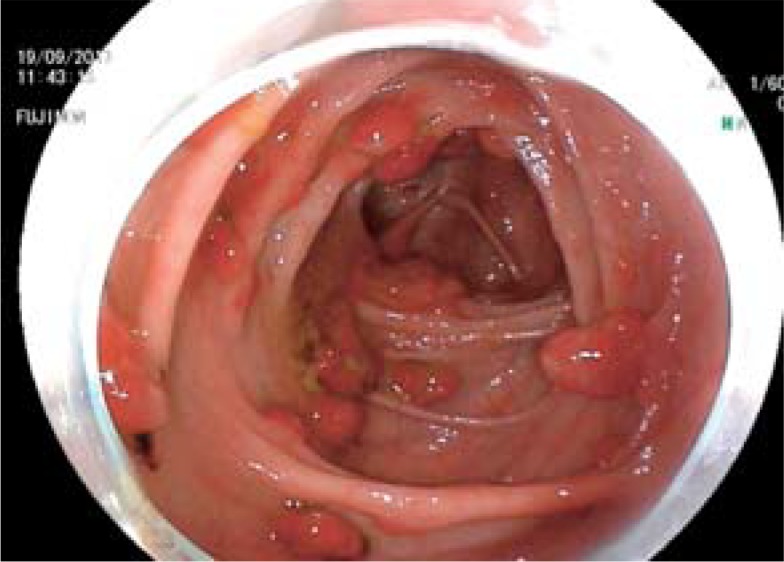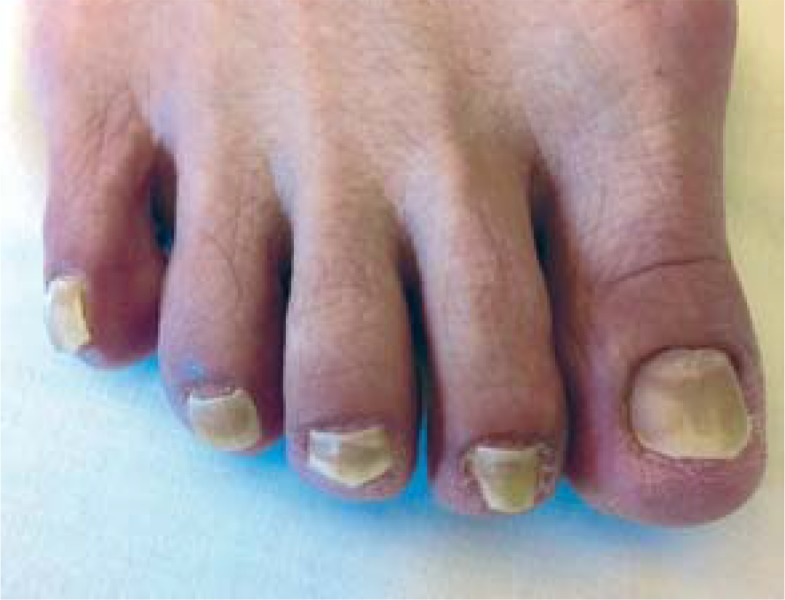A 53-year-old woman of Vietnamese origin presented with persistent diarrhea and weight loss of 7 kg. In addition to mild abdominal pain she had a 4-month history of progressive alopecia and, since a month before presentation, onychodystrophy of the fingers and toes.
Endoscopy showed intestinal polyposis (>100 polyps) with no demonstration of a malignant tumor or inflammatory bowel disease. Ensuing diagnostic polypectomy revealed hamartomatous polyps. Considering the overall findings, we diagnosed Cronkhite–Canada syndrome.
This rare, nonhereditary syndrome, thought to have an incidence of 1 : 1 000 000, manifests with intestinal polyposis, alopecia, onychodystrophy, and hyperpigmentation. The treatment consists of immunosuppression. Colorectal cancer seems to occur with increased frequency, so annual colonoscopy is recommended.
Administration of prednisolone ameliorated the alopecia and onychodystrophy, but the polyposis and diarrhea continued to progress. Satisfactory control of the symptoms was achieved with escalation to infliximab. Later, the patient declined further immunotherapy and underwent colectomy in Vietnam.
Translated from the original German by David Roseveare.
Cite this as: Keim VJ, Goßner L: A rare cause of intestinal polyposis.
Figure.


Footnotes
Conflict of interest statement:
The authors declare that no conflict of interest exists.


